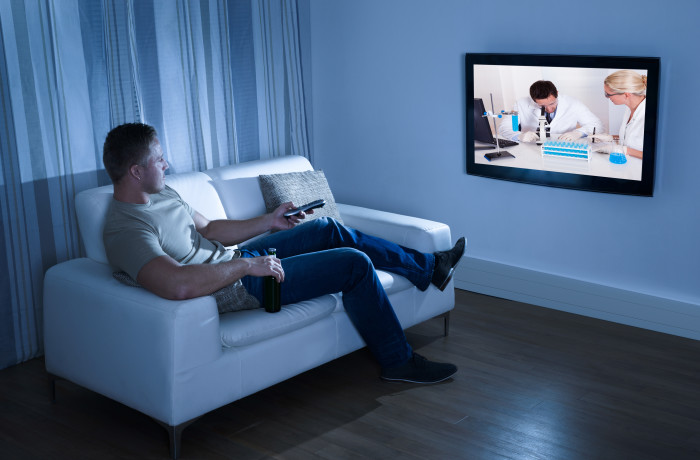Blue Light and Eye Health
There has been a lot of talk in the media about blue light exposure and how it may be affecting us. Since our exposure to high-intensity blue light has only been increasing in recent years, it’s hard to say for sure what the long-term effects will be. Still, there are facts we can use to understand risk, and there are small steps we can take to reduce our exposure.
Scientists know that blue light affects our sleep. Sunlight contains blue light, which signals to our brains that it is time to be awake. Sleep researchers have found that blue light interferes with sleep patterns because blue light suppresses melatonin production. This is good during the day when we need to be alert. Melatonin is the key component in our chemistry that makes us wind down and feel sleepy, however, so too much blue light in the evening can have consequences. The effects of blue light on sleep have been studied and the results showed how nighttime exposure to blue light made it more difficult to fall asleep and reduced rapid eye movement (REM) sleep. Reduced REM sleep leaves people feeling less rested in the morning, even if they get the same quantity of sleep as someone who read a book at night instead of doing an activity with blue light exposure.
Beyond sleep disturbances, many experts are concerned that blue light exposure may be harmful to our vision. The biggest risk is that blue light may increase risk for age-related macular degeneration. It’s not clear how much blue light from screens can cause harm to the eyes. CFL lightbulbs emit much more blue light than the screen on a smartphone, for example, and sunlight is still the biggest contributor of blue light.
What does this mean for you? Just as doctors have been saying for many years, it’s critical to protect your eyes from the sun. Wearing a hat with a brim, and always using UV-blocking sunglasses is crucial. Many people are also finding that they’re more comfortable with alternatives to LED bulbs in their homes. Many products exist to give you calming ambient light.
In addition, there are several ways to live in the digital world and protect your eyes. Make sure that you are viewing screens from an appropriate distance. Your computer screen should be at fingertip length when your arm is outstretched, directly in front of you. It’s also important to take a break from looking at a screen by focusing on something 20 feet away for 20 seconds. Do this at least once every 20 minutes to give your eyes a chance to rest and change focus.
Some patients also enjoy glasses that help block blue light for extended computer use and for hobbies like gaming. Some anti-reflective treatments and lenses also have blue light-filtering abilities. Talk to us if you’re concerned about your blue light exposure!



